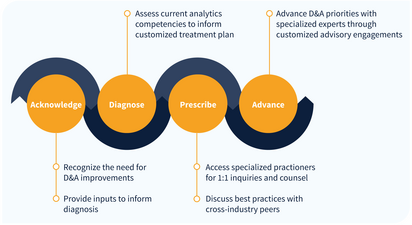Client Inquiry:
We’re getting started with data governance and are wondering how to go about data security. Is there an effective and efficient solution to tag and control access to sensitive data?
Expert Takeaways:
Three Types of Data Discovery and Security Tools
For structured and semi-structured data, there are tools can help you discover and protect your sensitive data. Many of their capabilities overlap, but here are the three basic tool groups:
- Data discovery: These tools identify data that’s most at risk for exposure.
- Data protection: Rather than encrypt data, these tools intercept queries, and, based on your company privacy rules, determine access rights. They’re highly flexible, allowing granular access/non-access at the row level.
- Data governance: Data governance tools can help you determine sensitive data. They don’t protect data.
Depending on your use cases, start with tools that either discover sensitive data or tools that protect and govern sensitive data.
Best-of-Breed Data Discovery and Security Tools
Major players such as Informatica and IBM are not always the leaders when it comes to data discovery and protection. They can be complex to use and tend to enforce proprietary restrictions.
- For data discovery and protection, look at best-of-breed tools that are agnostic of the other tools you use.
- Tools such as BigID perform large-scale data discovery and tagging for all your data. They also allow you to designate the data from a risk perspective, the results of which you can use for analytics. These tools have expanded into data protection.
- Once your sensitive data is discovered and tagged appropriately, tools such as Immuta, Okera, and Privitar can protect your data. These tools can also help discover sensitive data.
Developing a holistic data strategy will help you understand which tools you need. Never allow vendors to determine your data strategy. Their strategy suggestions are predicated only on selling their products.
Data Governance
Data governance tools such as Collibra and Alation manage your data, including metadata. Since you’re so new to data governance, the good news is that you have an opportunity to move forward on a progressive data governance agenda.
- Aim for business-focused data governance to promote analytical and revenue-operational efficiency rather than using governance only for data oversight.
- Most companies’ data are fragmented and at different levels of maturity. Use confederated collaboration, where you work with the groups that have data to determine how they’re currently governing their data. Use what they’re already doing to help you develop an ecosystem.
- Data catalogs are critical. You need an enterprise-level data catalog. If used right, tools such as BigID and Okera can help you develop the catalog.
“With the help of IIA Experts we were able to get multiple relevant perspectives on our issues quickly and efficiently without need for engaging expensive consultants.”
Expert Network
IIA provides guided access to our network of over 150 analytics thought leaders, practitioners, executives, data scientists, data engineers with curated, facilitated 1-on-1 interactions.
- Tailored support to address YOUR specific initiatives, projects and problems
- High-touch onboarding to curate 1-on-1 access to most relevant experts
- On-demand inquiry support
- Plan validation and ongoing guidance to advance analytics priority outcomes
- Monthly roundtables facilitated by IIA experts on the latest analytics trends and developments
